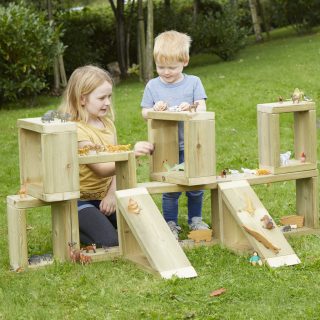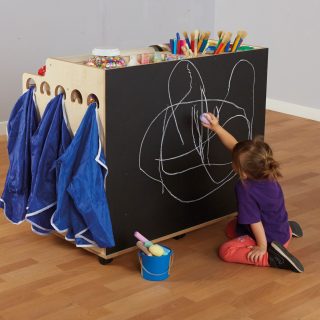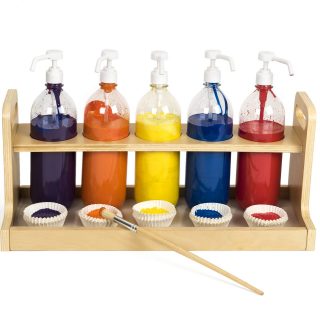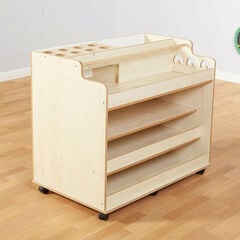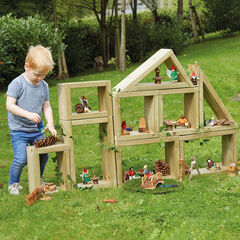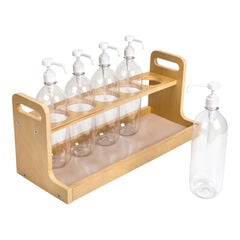This series of articles has been written by industry experts to help you to understand changes to the EYFS Framework. In this blog, Early Years consultant Alistair Bryce-Clegg looks at the Expressive Arts and Design area of the framework.
The key words for me in this section are ‘explore’, ‘experiment’ and ‘create’. This is all about giving children opportunities to explore the process and not getting hung up on the end result. By really understanding the process, children will be able to make more informed choices when it comes to being truly unique, individual and creative.
The frequency, repetition and depth of their experiences are fundamental to their progress in interpreting and appreciating what they hear, respond to and observe.
The Expressive Arts and Design Educational Programme
When I first started teaching, the culture was that, when it came to ‘art’, everyone would do the same thing. It was usually very closely linked to whatever topic we were doing at the time. I would decide what they were making, prepare the resources and also produce a finished version to work to. None of what I did was linked to creativity and process. It was all about production and the end result. I think we need to give children lots of experiences exploring materials and processes. But we need to let them experiment and interpret them using their own creativity. This may change how we approach creativity in our space and also what our displays look like.
A display entitled ‘Potato Printed Tulips’ (I remember that one well), where there would have been 30 versions of a tulip printed with a potato, would now
be called ‘Experimenting with Printing’ and would now show how the children who were interested had experimented with printing in a variety of ways with a variety of objects. Children are also required to explain the process that they have used in making their ideas come to life. So the more freedom they have in experimenting, the more that they will be able to articulate them.
We need to give children lots of opportunities to express their individual creativity.
Effective, continuous arts provision will really help children to be able to access resources and opportunities to consolidate, rehearse and extend what they know. In areas like painting, making, modelling and malleable materials, we can introduce new resources and media. This will be as an enhancement to what the children already know. But it is important that once we have introduced something new we don’t take it away.
What was an enhancement becomes continuous provision that the children can go on to access independently. Using your imagination is a huge part of being creative. In the Revised Framework ‘Being Imaginative’ has now become ‘Being Imaginative and Expressive’. This is just re-enforcing the fact that we need to give children lots of opportunities to express their individual creativity.
When we think about classic areas of provision that support this, like Small World and Role Play, the key is to make sure that they are open ended enough to allow for children to be creative and expressive. If your role play area is the Post Office and can only be the Post Office, then it is difficult for children to create their own world of stories and imagined happening to play out. If, however, your spaces are more open-ended with greater level of ambiguity, then children will be able to create, interpret and explore, in a way that will help them to develop all of these essential skills.
Explore our full range of Expressive Arts and Design resources here.
Interested in finding out more about the changes to the EYFS framework?
Click on the links below to read our other articles from Alistair Bryce-Clegg …
- Personal, Social and Emotional Development
- Communication and Language
- Literacy
- Mathematics
- Physical Development
- Expressive Arts and Design
- Understanding the World
- Supporting your EYFS Journey
Thank you to Early Years consultant and expert Alistair Bryce-Clegg for the content included in this blog.


